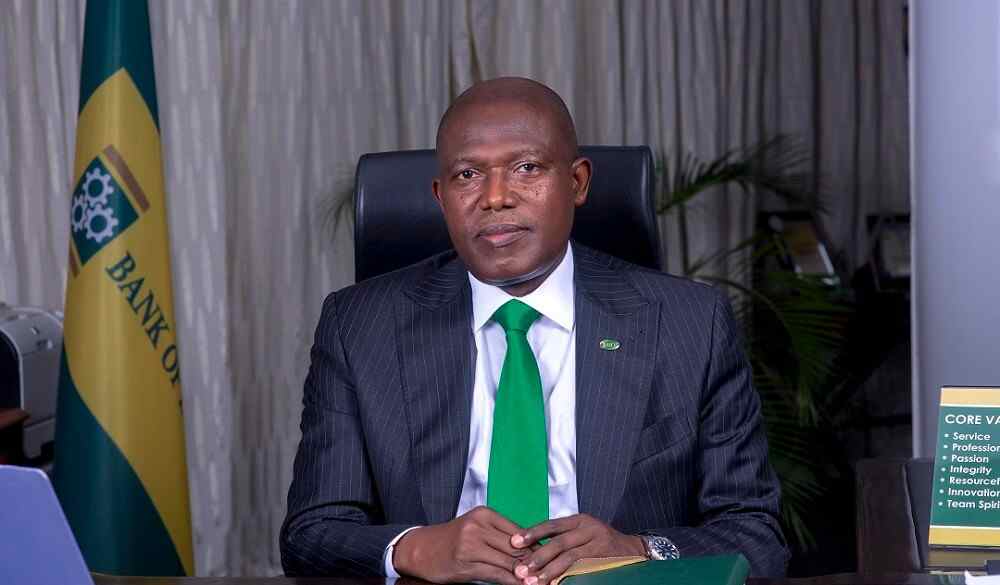The Bank of Industry (BoI) has provided over N100bn in funding for the development of the country’s health sector in the last five years.
The Managing Director of the bank, Mr Olukayode Pitan, disclosed this in Abuja at the ground-breaking event for the African Centre for Medical Excellence (AMCE).
The AMCE facility located along the Apo Mechanic-Kabusa road in Abuja is being developed by the African Export-Import Bank in partnership with Kings College Hospital, London; Bank of Industry; GE Health Care; Nigerian National Petroleum Company Ltd and the African Finance Corporation.
It will provide world-class care to both low and high-income patient groups across the continent.
Construction of the first phase of the Abuja AMCE is scheduled to be completed in 30 months.
The entire project will be implemented in four phases over a six-year period, starting off with a 170-bed specialist hospital before expanding to a 500-bed facility.
The AMCE plans to offer a full range of medical services, including diagnostics, treatment, nuclear medicine, surgery and post-surgical care, along with complementary specialist services covering oncology, haematological diseases (including sickle cell and blood cancers) and cardiovascular ailments.
Speaking on the project, the BoI MD said it was conceived as a result of the strategic alliance between African Export-Import Bank and Kings College Hospital London to develop medical centres of excellence across Africa.
Pitan thanked President Muhammdu Buhari for the support of his government in creating an enabling environment for the growth of the Bank of Industry and other similar institutions across Nigeria.
The President’s support, according to the BoI MD, has given the bank the capacity to take part in a transformational project such as this which is aligned to the bank’s mandate.
He said, “We at the Bank of Industry are very excited to be part of this project which would focus on cardio-vascular cases and oncology not only here in Nigeria but in the entire West African sub-region.
“The Coronavirus pandemic has taught us that we must build capacity to cover various aspects of healthcare within the country. This will save us at estimated $1bn annually on what we spent on medical tourism abroad.
The health industry is one of the focus areas of the Bank of Industry because we believe that a healthy people will result in a healthy nation.
“Consequently, we have supported the sector with over N100bn in the last five year. On behalf of the investors in this project, AfreximBank, BoI, GE Health Care, NNPC, African Finance Corporation, we are pleased to be part of this transformational project that will literarily transform the provision of health care services not only in Nigeria and in Africa.
“It is our hope that the dividend that will come from this project will not only be in terms of a healthy nation but the financial success of this project to enable us support similar projects.”
The President of Afreximbank, Prof Benedict Oramah, said the facility will also offer education and clinical research services with a view to building leading talent and becoming a top tier-level medical facility.
He said the Abuja AMCE will not only enhance access to healthcare services for 50,000 people every year, but also provide 3,000 jobs during its construction and operational phases.
In setting up the AMCE, he said Afreximbank aims to assist in the provision of quality healthcare, enhanced service offerings, training, expanded employment, conservation of foreign exchange in Africa and promotion of intra-African medical tourism.
Oramah described the AMCE as a landmark project for Africa that is designed as an initiative under Afreximbank’s 5th Strategic Plan.
With the successful delivery of the Abuja AMCE, he said the Bank will be well prepared to implement its continent-wide plan of developing a network of AMCEs across Africa and contribute its quota in improving the quality of lives of the African people.
The Afreximbank boss said the Abuja AMCE will also tackle the rising burden of communicable and non-communicable diseases, with general care capabilities that will serve the entire West Africa region and beyond.





